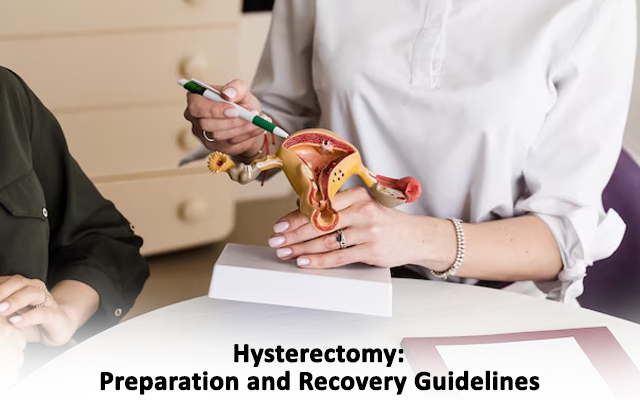A hysterectomy involves the removal of the uterus. It is one of the most common surgeries performed on women and may be necessary for a variety of reasons. These include conditions like uterine fibroids, endometriosis, cancer, chronic pelvic pain, or abnormal bleeding. It’s important to understand how to prepare for your hysterectomy surgery and what to expect during recovery.
Preparation for a Hysterectomy
Follow the steps to prepare for undergoing a hysterectomy.
1. Pre-Operative Appointments and Tests
Prior to the hysterectomy, you will have consultations with the surgeon and anesthesiologist to assess your health. This may include blood tests, an electrocardiogram (ECG), and imaging tests like ultrasounds or X-rays to ensure the body is ready for surgery. These tests help identify any underlying conditions that might affect the surgery or the process of recovery.
2. Medications and Lifestyle Changes
You may be asked to stop taking certain medications before the surgery. You may also need additional medications to optimise your health before surgery. In case you smoke, quitting will shorten the recovery time and reduce the risk of complications. Maintaining a healthy diet, drinking plenty of water, and engaging in light exercise (with approval from the doctor) can also improve your health before surgery.
3. Understanding the Procedure
There are different variations to this procedure that have been mentioned below:
Total Hysterectomy: Enables the removal of the uterus and cervix.
Subtotal (or Partial) Hysterectomy: Helps remove the uterus, but the cervix is left intact.
Radical Hysterectomy: It helps remove the uterus, cervix, part of the vagina, and surrounding tissues. This is usually done for cancer treatment. The approach can be either through an abdominal incision (open surgery) or using minimally invasive techniques like laparoscopy (keyhole surgery). The doctor will explain which method is best for your condition.
Recovery Guidelines After Hysterectomy
The recovery period after a hysterectomy varies based on the type of surgery and the individual’s health. On average, recovery can take from six to eight weeks, though this time can differ. Here are some general guidelines to help you through the recovery process.
1. Hospital Stay
If you have an abdominal hysterectomy, you may stay in the hospital for 2-3 days. Laparoscopic or vaginal surgeries often require a shorter stay, sometimes just one day. During the hospital stay, you will be monitored for signs of infection or bleeding. Pain management will also be addressed, and you may be prescribed medication to help manage discomfort.
2. Rest and Activity Restrictions
Rest is essential during the first few weeks after surgery. Avoid lifting heavy objects, strenuous activities, or having sexual intercourse until cleared by the doctor. It’s essential to follow the doctor’s advice to ensure proper healing. Walking and light activities are recommended to enhance circulation and lower the risk of developing blood clots, but intense exercise should be avoided initially.
3. Pain Management
Some pain, cramping, or bloating is normal after a hysterectomy. The doctor will recommend pain relievers to manage discomfort.
4. Monitoring for Complications
Watch for signs of complications, like heavy bleeding, fever, or signs of infection (increased redness or swelling around the incision). If you experience any of these symptoms, contact the doctor immediately.
5. Follow-Up Appointments
Regular follow-up appointments with the doctor are important for monitoring your recovery progress. The doctor will check the surgical site, discuss any symptoms you are experiencing, and address any questions about your healing process.
Conclusion
Preparing for and recovering from a hysterectomy requires careful planning and follow-up care. Proper preoperative preparation ensures the procedure goes smoothly, while post-surgery recovery involves managing pain, following activity restrictions, and allowing time for healing.
If you want to know more about this procedure, you can reach out to Dr. Smita Jadhav, gynecology doctor in Salt Lake. They will patiently address your concerns and provide you with effective guidelines to prepare for the surgery.


